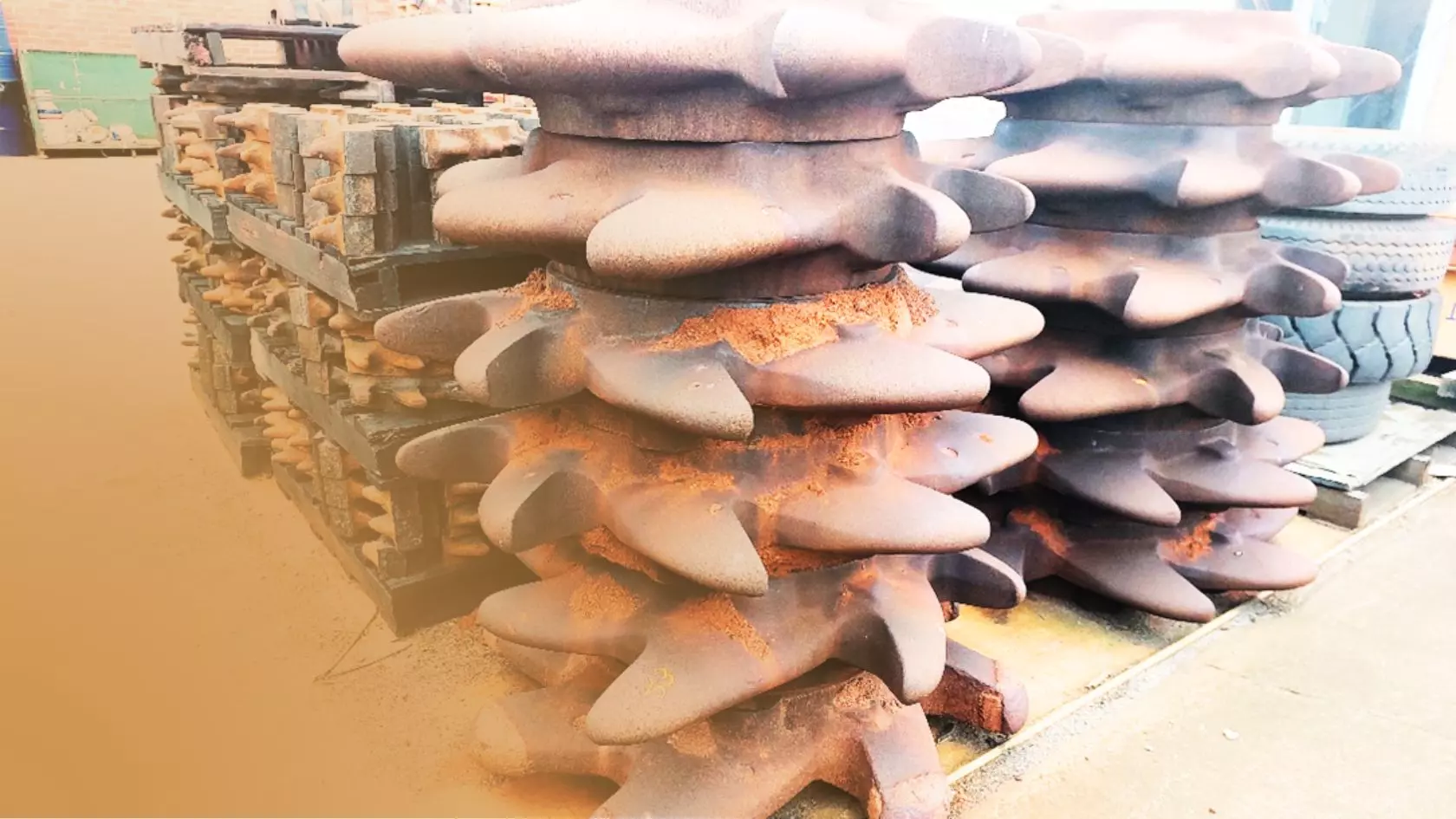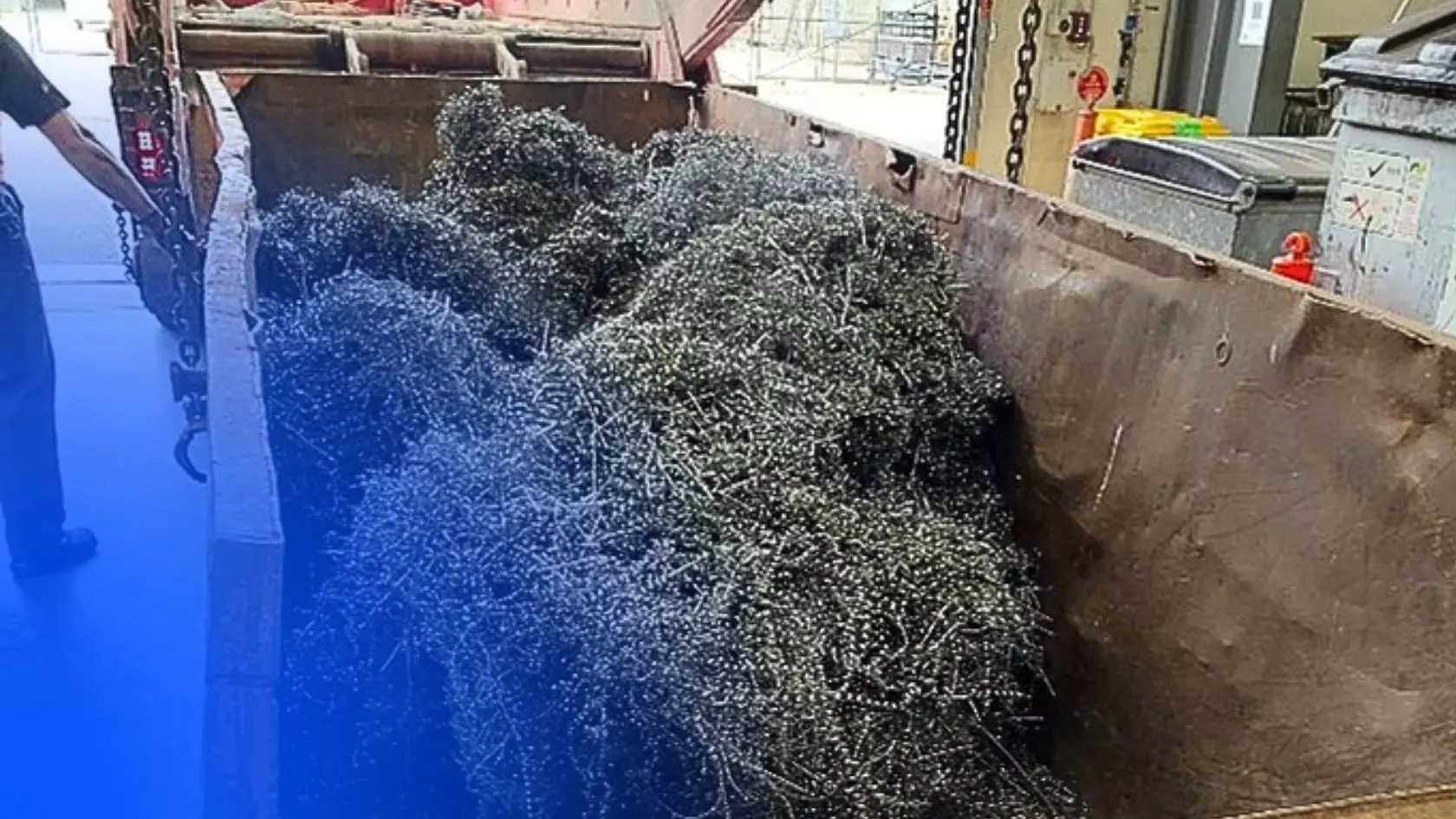FLSmidth’s Melbourne operation has been the home of the ABON® Sizer and Rollerscreen product lines for over 50 years. These products have a large installed base across the globe in a range of mining and cement applications, including alumina, iron ore, copper, nickel and limestone.
Both products are fully manufactured and supported in-house by our team in Melbourne, where we provide design, engineering, raw material procurement, manufacture, technical support and spare parts.
Environmental impact
The manufacture of ABON Sizers and Rollerscreens involves a large amount of steel, the production of which is energy intensive. At ABON, in line with FLSmidth’s overall sustainability ambitions, we are always working to find solutions to reduce the environmental impact of our operations. A key focus area is the recovery and recycling of steel components to be upcycled, which has several important sustainability benefits:




Embracing the circular economy
For FLSmidth ABON in Melbourne, upcycling is nothing new, having run a highly successful steel reuse and recycling programme for over 20 years. The programme is founded on strong customer and supplier relationships, a comprehensive understanding of how to add value to our customer’s business, and, of course, a strong desire to adopt circular economy practices to reduce our environmental footprint.
The opportunity to reduce the environmental impact comes from both the manufacturing and the maintenance of the ABON product lines.
Our “take back” programme encompasses:
- Recovering and recycling steel offcuts and machine turnings from the manufacturing process
- Recycling unserviceable, worn teeth and shafts from refurbishments
The manufacturing operation produces steel offcuts and machine turnings, which are upcycled through arrangements with our steel suppliers.
Building business relationships
We also support our customers with machine and shaft refurbishments, enabling them to prolong asset lifetime. Providing this service ensures we stay in touch with our customers’ needs.
"In addition to the circularity aspects, this programme helps us gain deeper understanding of how our customers use our products,” comments Greg Berry, Product Manager, FLSmidth ABON. “This means we can maximise performance or we redesign it to suit customers’ specific needs in the refurbishing process.”
He continues: “Our ability to recycle materials is dependent on a collaborative relationship with our customers, steel suppliers and foundries. A refurbishment usually produces unserviceable parts that need to be disposed of. Instead of these parts ending up as waste, they are reused by one of our steel suppliers.”
In addition, FLSmidth ABON has an agreement with a foundry to purchase worn tooth castings from the ABON Sizer product and reuse them in the supply of new castings.
In the last five years, the foundry has reused more than 430 tonnes – or approximately 80 tonnes per year – of scrap manganese segments. These are used exclusively in ABON manganese melts. With about 700 tonnes per year of manganese segments being produced, this means approximately 10% of manufacturing output is recycled.
2022 recycling data
 2,474
2,474
tonnes of steel recycled
 304
304
tonnes of steel returned to foundries
 2,169
2,169
tonnes of steel returned to suppliers
How does the recycling process work?
The scrap is prepared for melting by shot-blasting and then flame-cutting into manageable pieces to feed into the furnace. Shot blasting helps to reduce emissions caused by mud and ore contaminant producing fumes in the melting process and to minimise the potential of molten sparks being produced.
The mix for melting in the furnace is 60% scrap and 40% virgin material, which consists of mild steel and alloys such as ferro manganese and manganese flake to balance the chemical specifications required.
Our yield on a melt is nominally 60%. This means for 1000kg melted, we achieve a raw casting of 600kg, with the balance being casting runners and risers which are returned for remelting. When we don’t have sufficient scrap, we melt virgin metals together with these returns.

At the end of their lives, worn teeth are unserviceable. These and other large metal items are returned to the foundry, where they are cast into new teeth.

Waste materials such as swarf and turnings can be reused in the manufacture of other metal products.
New circularity guidance for the steel industry
The Science-Based Targets initiative has recently published guidelines for the steel industry to help companies implement decarbonisation strategies. The guidance highlights the need for a shift towards greater circularity in the industry, including ensuring the availability of scrap metal in production.
Read more about the Steel Science-Based Target-Setting Guidance →